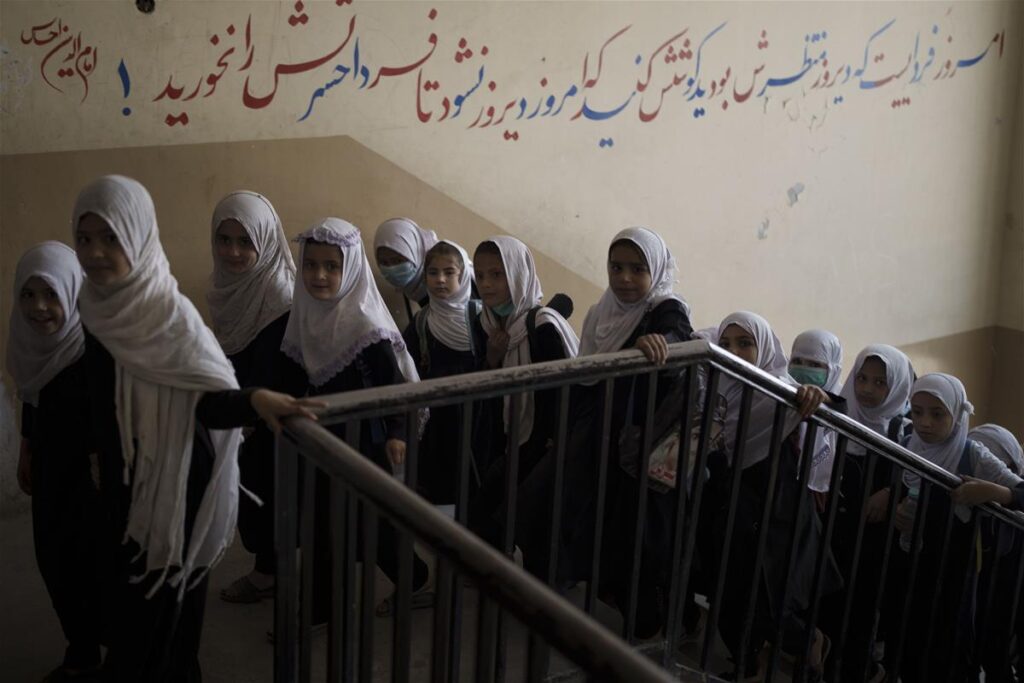Girls are being kept out of Afghan secondary schools as they reopen

Image credit: Newser
After ordering only males and male teachers to return to the classroom, the Taliban have banned girls from attending Afghan secondary schools.
The Islamist group’s statement announcing the return of secondary school sessions included no mention of girls or women.
Despite Taliban assurances, this is the latest indicator that Afghanistan is reverting to the harsh rule of the 1990s. In a separate step, the Taliban appears to have shut down the ministry of women’s affairs on Friday, replacing it with a department that used to enforce stringent religious principles.
“All male professors and students should attend their educational institutions,” according to a statement released ahead of the resumption of Afghan schools on Saturday.
Secondary schools mainly cater to children aged 13 to 18. Most schools are similarly separated, making it simple for the Taliban to shut down females’ schools.
Nororya Nizhat, a former spokesperson for the Afghan Ministry of Education, called it a setback. “This is reminiscent of the Taliban’s actions in the 1990s. As a result, we now have a generation of illiterate and uneducated women, “she stated.
The Taliban stated earlier this week that women would be allowed to study at institutions, but not alongside men, and would be subject to a new dress code. Some speculate that the new laws will keep women out of higher education since colleges lack the means to offer separate classes. Girls will be barred from secondary schools, which means they would be unable to continue their studies.
Since the Taliban were deposed in 2001, great progress has been made in increasing enrolment and literacy rates in Afghanistan, particularly among girls and women. In a decade, the number of girls enrolled in primary schools climbed from practically zero to 2.5 million, and the female literacy rate nearly doubled to 30%. Many of the gains, however, have been realised in cities. The Taliban declared shortly after gaining power that women’s rights in Afghanistan would be protected “within the framework of Islamic law.” ‘
